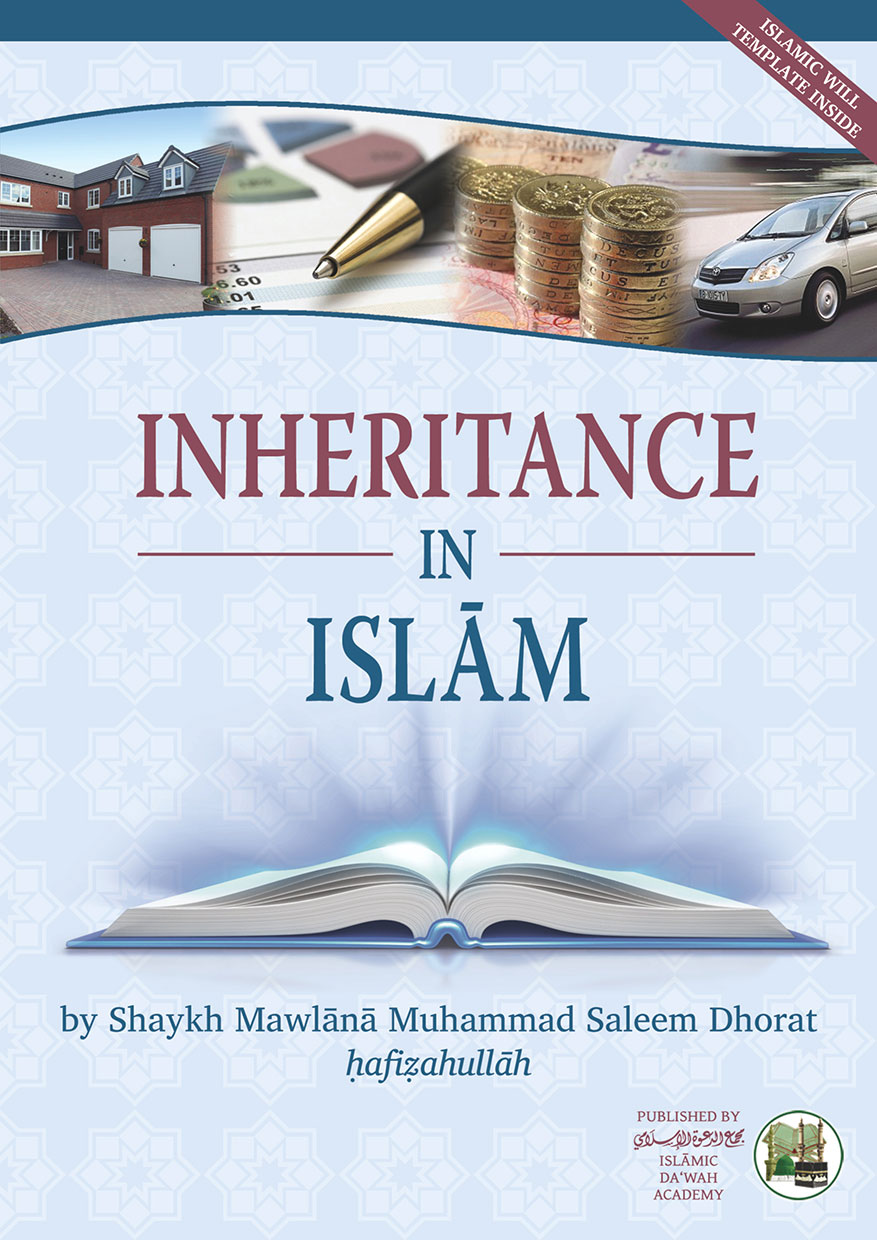بسم الله الرحمن الرحيم
![]()
14th Jumādal-Ākhirah 1441 AH ~ Saturday 8th February 2020
By Shaykhul-Hadīth, Hadrat Mawlānā Muhammad Saleem Dhorat hafizahullāh
Recently two close members of my family departed to meet the Creator (this article was written in April 2018): my aunt being my father’s first cousin; and my nephew, who unexpectedly departed at the age of 44. May Allāh ta‘ālā forgive them and grant them entry into Jannatul-Firdaws, Āmīn.
During moments of both joy and grief, we have been provided with guidelines by our beloved Nabī sallallāhu ‘alayhi wasallam which we need to follow, in order to be rewarded by Allāh ta‘ālā. On the occasion of a bereavement, we need to pay attention to certain points related to bathing, shrouding and burying the deceased:
• The injunction of hijāb should be observed by every Muslim male and female. It should be observed in one’s lifetime and also when someone passes away, from the moment of death, during the bathing and shrouding and until after the burial. Non-mahrams of the deceased should not view the deceased.
• It is more virtuous and better to give ghusl to the deceased as soon as possible. It is common practice to first fix the time of the burial and thereafter give ghusl as per our convenience. The practice which needs to be adopted is that the custodians of the deceased should focus on bathing and shrouding the deceased as soon as the person passes away, whilst simultaneously making arrangements for the burial.
• Before giving ghusl, those giving ghusl should go through the procedure of giving ghusl to the deceased and not rely on their own knowledge. It is not every day that we give ghusl to the deceased, so many a time even those who regularly give ghusl also become habituated to adopting an incorrect method which afterwards becomes their norm, assuming that it is correct. Similarly, the ‘Ulamā only get the opportunity to give ghusl once in a while as well and so can also be prone to mistakes. Therefore, everybody should refer to simple books of fiqh and go through the method of giving ghusl; thereafter, give ghusl according to the correct method trying utmost to carry out as many sunnah and mustahabb as possible. (Inshā’allāh the IDA will soon publish a leaflet, detailing the method of how to bathe the deceased.)
• When giving ghusl to the deceased, the cloth used to cover the body of the deceased should be dark in colour like black, brown or blue, so the body of the deceased does not become visible even after the cloth becomes wet.
• It is sunnah to apply perfume to the deceased. The method for this is to apply camphor upon those limbs and parts of the body which touch the ground during Salāh in prostration. ‘Itr (perfume) will be applied to the beard and the hair of the head for males and only to the hair of the head for females.
• When lifting the deceased people normally recite Shahādah loudly and some people encourage others to do so as well. This is makrūh. One should remain engaged in silent dhikr of their preference and ponder over the situation which the deceased is to face soon and make du‘ā accordingly.
• In the presence of the deceased, the Glorious Qur’ān can be recited silently or audibly if the ghusl has taken place. However, if the ghusl is yet to take place, it will be permissible to recite the Qur’ān audibly near the deceased if the body is totally covered from head to toe, or if one recites at a distance from the deceased. If the body is not fully covered, the Qur’ān may be recited silently near the deceased. However, the Qur’ān should not be recited if any impurities are upon or around the deceased. Similarly, Qur’ān should not be recited whilst in the bathing area whilst the ghusl is taking place.
• The viewing of the face of the deceased before the Janāzah Salāh is contrary to Islamic teachings if it leads to a delay in the performance of Janāzah Salāh, resulting in a delay in the burial. From this it is concluded that it is also contrary to Islamic teachings to view the face of the deceased after the Janāzah Salāh, as this will definitely lead to a delay in the burial. Some ‘Ulamā are of the opinion that this practice should be discarded completely as it can lead to other wrongs, such as people taking photos of the deceased.
• Sometimes close relatives, such as a son, hold on to the Janāzah throughout. This is against the Sunnah method. Similarly, it is preferred to walk behind the Janāzah; it is ok for a few people to be slightly ahead of the Janāzah. Moreover, for the majority to proceed ahead of the Janāzah is makrūh.
• Those who are going to participate in the Janāzah Salāh, should go through the method of performing Janāzah Salāh and in particular understand the necessary requisites of Janāzah Salāh. (Inshā’allāh a leaflet will soon be available from the IDA.)
• The followers should say the takbīrāt during the Janāzah Salāh softly.
• Those who participate in Janāzah Salāh should go with sincerity, only for the Pleasure of Allāh ta‘ālā and with the aim to acquire the reward that He has promised. Participating in Janāzah Salāh and burial only to show one’s presence is contrary to the teachings of Islām.
• Dignity should be maintained before and after the Janāzah Salāh, whilst the burial is taking place and after the burial. People should not make noise and talk about worldly matters; they should avoid meeting and greeting each other; complete focus should be on the success of the deceased in the grave. Everyone should continue to busy themselves in dhikrullāh and recitation of the Glorious Qur’ān, passing its reward to the deceased and continually asking Allāh ta‘ālā to forgive the deceased.
• It is preferable to bury the deceased without a coffin; not to benefit from this facility where it is available and to bury the deceased in a coffin is lamentable. However, in conditions where there is excessive moisture in the soil, a coffin may be used.
• The whole body of the deceased should be turned towards the Qiblah, not only the face. The body should be turned to its right, and if possible, supported against the wall of the grave towards the Qiblah side. If required, soil can be placed to support the back of the deceased.
• Many a time, the filling of the grave is done by using a digger. Those present should wholeheartedly participate and fill the grave with their hands or by using spades.
• After the burial it is mustahabb to recite the beginning verses of Sūrah Al-Baqarah at the head and the final verses of Sūrah Al-Baqarah at the feet of the grave, as was the practice of Sayyidunā Ibn ‘Umar radhiyallāhu ‘anhu. However, this practice should be left out now and then, so that people do not deem it to be necessary. The Glorious Qur’ān is recited to attract the Mercy of Allāh ta‘ālā through which it is hoped that the deceased will be saved from punishment of the grave. Similarly, the recitation of the Qur’ān is a means of solace and comfort for the deceased, along with its reward being a blessing for him. For these reasons, the gathering can recite any portion of the Qur’ān. Furthermore, after the burial all forms of adhkār and du‘ā are permissible; to deem a certain form of dhikr or portion of the Qur’ān to be necessary is incorrect.
• As mentioned above, the recitation of Sūrah Al-Baqarah, or any other portion of the Glorious Qur’ān, is for the benefit of the deceased and not for the gathering. Therefore, it is not necessary for the recitation to be so loud that it reaches the whole gathering. Some ‘Ulamā are of the opinion that these verses should be recited silently. From this it can be understood that microphones are not required for this purpose; rather it is better to discard the use of microphones.
• Congregational du‘ā after the burial is permissible, but not necessary. This practice should also be left out at times. Similarly, there is no need for du‘ā after the burial of a child, as it is sinless.
• After the burial, people pay a lot of attention to bettering the grave and others busy themselves comforting the near and dear ones; as a result they become negligent of the deceased. It is desirable after the burial, for the near and dear ones to stand around the grave for a while and recite the Qur’ān or engage in adhkār and du‘ā for the deceased. Mullā ‘Alī Al-Qārī rahimahullāh has stated that each person should try to recite Sūrah Yāsīn after the burial.
• Sprinkling water over the grave after the burial to settle the soil is mustahabb. To deem it necessary is incorrect.
• The cost of the burial is the responsibility of the deceased, and so will be taken from his estate, except in case of a wife, for whom the burial costs are borne by the husband. However, the relatives and well-wishers who come for the funeral are not the guests of the deceased and are not his responsibility. The cost of the food for the guests can only be paid from the estate of the deceased, if all the inheritors are bāligh (mature) and they wholeheartedly give permission.
• Those attending the burial should try to make their own arrangements for food, as on such occasions we should not become a burden on those who are grieving.
• It is mustahabb for the relatives and the near and dear ones to feed the family of the deceased for one day, and according to some ‘Ulamā, a maximum of three days. However, it is a matter of concern that this beautiful sunnah of assisting and helping those in grief sometimes takes the form of a feast, where 50 to 100 people are invited and many times it goes beyond Shar‘ī limits too.
• The leaflet, “Ta‘ziyah: The Sunnah Method of Consoling the Bereaved”, and the booklet, “Inheritance in Islām”, both published by the Islāmic Da‘wah Academy (www.idauk.org), should be read by every individual.
May Allah ta‘ālā grant us all the ability to practice. Āmīn.
© Riyādul Jannah (Vol. 27 No. 3)
| We are witnessing an era where Islām, in spite of its vastness and applicability in every sphere of the human life, has been confined to mere beliefs and a handful of rituals. As with some other important obligations of Islām, the obligation of ensuring the correct procedures in the field of inheritance has also been subjected to gross disregard and outright neglect. In fact, this section of Dīn can be said to be the most neglected one among all. Seeing such state of affairs, the respected Shaykh hafizahullāh embarked on the task of acquainting the Muslims on the importance of this vital duty. The lectures delivered proved to be highly informative and beneficial, but only to a limited audience. In order to extend the benefits to a larger part of the Ummah, it was decided that two of these lectures be selected and published in booklet form. (34 pages p/b + Islamic will template) £1.00A few topics mentioned in the booklet are as follows:• Equality in inheritance • What can be drawn from the estate • The importance of drawing up a will • Causes of incorrect wills • Criteria for wasiyyah (bequest) • What to do following a death • Common errors and customs |
| To order the above book or for details of our other publications, please email info@idauk.org or call 0116 262 5440. |
• Please forward this message on to all your contacts •


